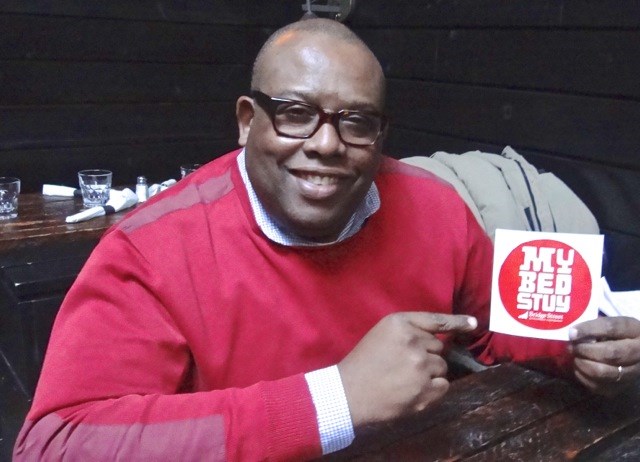
The following is a re-publish of an article that originally ran on February 11, 2014
On Thursday, April 3, from 7:00pm — 8:30pm at Fashion Rock Hall, located at 491 Tompkins Ave (between Decatur and MacDonough) Bridge Street Development Corporation will hold a public forum introducing the concept of equity crowdfunding.
The event, entitled, "Crowdfunding: The Urban Approach to Exploring Non-Traditional Funding and Investment Opportunities," is part of Bridge Street's "Mapping the Road Ahead" for business and community series.
By now, we all know what crowdfunding is— a way to to raise money for a project or new business venture by accessing a vast network of friends and family through social media portals.
But, there is an entirely new concept soon-to-be-approved by the Securities and Exchange Commission: equity crowdfunding on a local level.
Thanks to Title II of the JOBS Act, which was signed by President Obama in 2012, existing businesses can now leverage crowdfunding platforms to offer potential investors an equity stake in their business. However, these investors must verify their accreditation, if they want to stay out of trouble with the SEC.
But according to Kenneth Mbonu, director of economic development at Bridge Street, by summer 2014, the SEC will approve a new provision that will allow even micro-level investment into smaller ventures, i.e., the ability for residents to invest like private equity funders in the businesses of their own community.
"It's an asset acquisition platform that's attainable for even poor residents" said Mbonu. "A way to elevate the average resident and change they way they think about their community, because they'll have an actual stake in it."
So for example: A locksmith who already has a successful door-to-door business and who has been advertising online may decide they want to grow his business but has not been able to acquire enough funding to get started.
Perhaps he is looking to open up a small shop. He or she can reach out to the community for crowd-funding. Community members can decide to give a nominal fee monthly to help secure that business while also become stake owners.
"It changes the way people think about ownership and asset accumulation," said Mbonu, "because I can now become an equity player in my community.
"A bank may not be willing to loan you the money, and I don't know a lot of rich investors. So, right now, if you own limited assets, this is a way you can begin to hold significant assets, while helping to build up your own community.
Mbonu added, if you are financially tied to an asset, naturally, you'll want to reap some sort of benefit. So you'll do what is necessary to protect it, nurture it and grow it.
Mbonu said the forum will feature experts on the topic to discuss the details behind equity crowdfunding, and how the community can prepare for its involvement, either as potential business-owners or as investors.
"It's a way to change the psychology of the community, because now the community can invest in the community," said Mbonu.
"So I hope many people can come to this public forum, get educated, get invested and get wise!"



